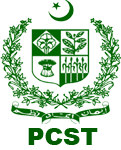7. International Cooperation
7.1 Bilateral Cooperation
85. The Ministry of Science and Technology has signed agreements on S&T cooperation with more than 30 countries. However, with the exception of a few notable examples like China and USA, most of the agreements are dormant while there is sporadic activity in the case of other countries such as Turkey, Argen-tina etc. Intensive efforts are therefore neces-sary to have a lively and fruitful bilateral co-operation with other countries on the basis of mutual benefit. The guiding principle should be to strengthen the S&T system of the coun-try and improve its capacity to contribute to the socio-economic development of the coun-try. Besides, the cooperation with industrially advanced countries, where the main objective would be to build/improve technological ca-pability, increased attention needs to be paid to S&T cooperation with countries that are at a similar stage or are at a lower stage of devel-opment as Pakistan; with countries at a simi-lar level of development the objective should be sharing of experience for learning from the experiences of other countries and gain from the areas of their strength on a mutual basis while with countries at a lower level of techno-logical development, S&T cooperation will be based on the expectation that by helping these countries in the technical fields benefits might accrue in other fields, such as trade. Emphasis is needed on the active collaboration related to S&T with the neighboring countries, whereas, there is a need of encouraging the country�s R&D organizations, universities, scientists / engineers / technicians to establish coopera-tive links with their counter parts in the foreign countries.
86. It is also important that the terms of agree-ment between Pakistan and a partner country give sufficient liberty to relevant organizations in both countries for proposing joint projects. Direct interaction between the Principal In-vestigators in two organizations is necessary to chalk out an effective research programme
International Cooperation
based on the available expertise and desired outcome of the project. The Ministry may des-ignate a �monitoring team�, for periodic review of the status of each MoU and report to the Sec-retary in order to overcome any impediments. The team may also be entrusted to publicize bilateral agreements to a wide group of organi-zations and institutions as well as universities, to seek most appropriate research partners.
7.2 Multilateral Cooperation
87. Besides being a part of the UN system, Pa-kistan is a member of various international and regional agencies such as ECO, SAARC, D-8, COMSATS, OIC etc. that have multilateral co-operation activities in science and technology oriented towards socio-economic develop-ment. Pakistan should continue to participate in these multilateral programmes; in fact it should take the lead role wherever possible. Similarly, Pakistan should participate actively in �big science� multilateral projects launched jointly by the technically advanced countries. Participation in the Large Hadron Collider programme of CERN, where contribution by Pakistan in the construction of the CMS de-tector components has enabled Pakistani sci-entists to carry out research work at the new facility. Similar participation in other interna-tional projects of this nature will increase the prestige of Pakistani scientists as well as that of the country in the international scientific com-munity.
88. Pakistan has invested human and finan-cial resources in establishing COMSATS which is an Inter-governmental Organization (IGO), with a mandate to promote South-South coop-eration in Science and Technology. This unique opportunity of leadership role for Pakistan needs to be capitalized through a strong back-ing of Ministry of Science and Technology, Ministry of Finance and Ministry of Foreign Affairs. The COMSATS platform is a potent source of creating collaborative scientific ven-tures with other members of the organization spread over 3 continents.
89. The importance of international S&T co-
National ST&I Policy 2012 35
International Cooperation
operation as discussed above necessitates the following actions:
Policy Actions:
A48. Designation of a �monitoring team� for periodically reviewing progress on bi-lateral MoUs and dissemination of rel-evant information to research institu-tions and ministries.
A49. Ensuring strong participation in multi-lateral scientifi c fora.
A50. Capitalizing the scientifi c leadership role provided by Pakistan based IGOs.
